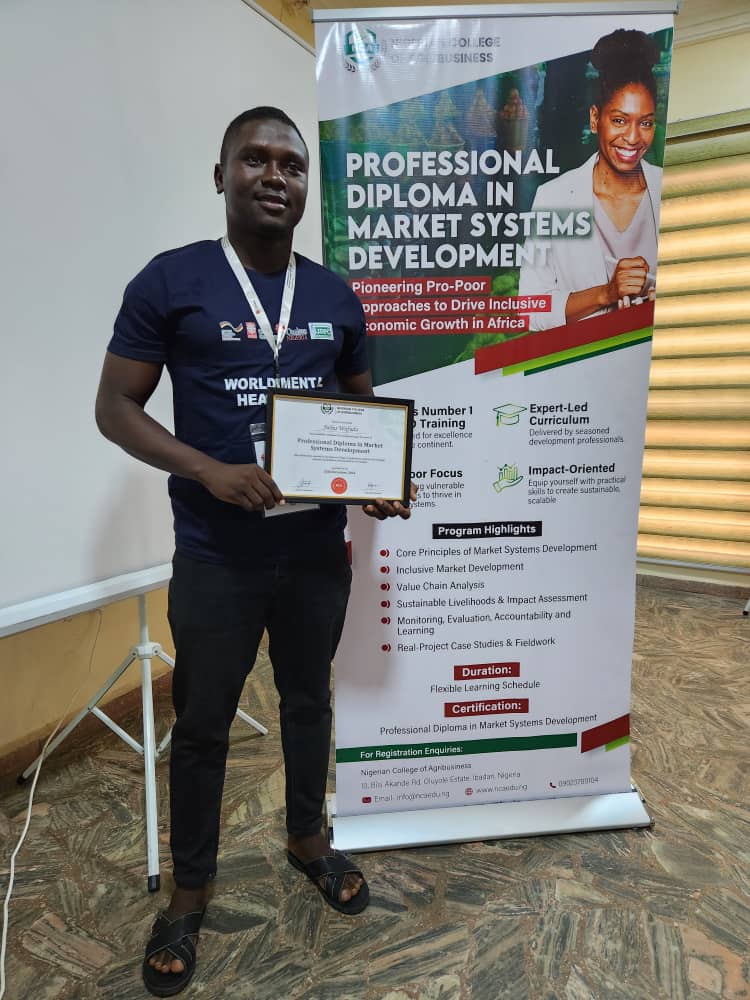Start Dates
Duration
Fees
Mode of Study
The Diploma in Food Processing and Post-Harvest Management is a specialized program designed to empower participants with the knowledge and practical skills needed to excel in the dynamic and crucial field of food processing and post-harvest management. This program is meticulously structured to cover a wide range of food products and commodities, ensuring that students gain a holistic understanding of the industry.

Our program covers a wide spectrum of food products, ensuring that students are well-versed in the processing and post-harvest management of fruits, vegetables, grains, meats, dairy, seafood, and other commodities. This comprehensive approach equips graduates to excel in various sectors of the food industry.
A dedicated module on food quality control, standards, and certifications equips students with the expertise to maintain and ensure the highest standards of food quality and safety. Graduates will understand the importance of adhering to regulatory standards and certifications in the food industry.
Graduates will be well-prepared to identify market trends, assess consumer preferences, and make informed decisions to maximize economic returns in the food processing and post-harvest sector.
Introduction to Food Processing and Post-Harvest Management
1.1 Introduction to Food Processing
1.2 Post-Harvest Management
Fruit and Vegetable Processing
2.1 Fruit Processing
2.2 Vegetable Processing
Grain and Cereal Processing
3.1 Grain Handling and Storage
3.2 Cereal Processing
Meat and Poultry Processing
4.1 Meat Processing
4.2 Poultry Processing
Dairy and Dairy Product Processing
5.1 Dairy Processing
5.2 Dairy Product Manufacturing
Seafood Handling and Processing
6.1 Seafood Handling and processing
6.2 Value Addition in Seafood Products
Food Packaging and Preservation Technologies
7.1 Food Packaging
7.2 Food Preservation Techniques
Post-Harvest Management of Specific Commodities
8.1 Commodity-Specific Post-Harvest Practices
8.2 Commodity Value Chain Analysis
Food Quality Control, Standards, and Certifications
9.1 Food Quality Controls
9.2 Food Safety Standards and Regulations
9.3 Food Quality Standards
9.4 Certifications and Quality Assurance
9.5 Food Auditing and Inspection
9.6 Food Traceability and Recall Management

No other institution in Africa offers such a comprehensive approach to agribusiness and development sector education as the Nigerian College of Agribusiness. We provide a unique blend of academic rigor, practical expertise, and industry connections. Here, you will learn from experienced faculty members who are experts in their fields and deeply engaged with the latest advancements in their industries.
We leverage interdisciplinary knowledge and the latest research to enhance our programs, ensuring they are relevant and impactful. At NCA, you will continuously engage with thought leaders who are constantly shaping the dynamics of their industries and after graduation, you will be a life-long member of a vibrant alumni community that continually foster cross-disciplinary learning and networking.
STEP 1: Complete the Application for Admission Form for the course
STEP 2: A non-refundable application fee of N20,000 applies and will be deducted from the tuition upon enrollment. This is payable into
Zenith Bank
Account Name: Nigerian College of Agribusiness
Account Number: 1228461510
STEP 3: Attach receipt of Application fee with your highest academic credential and submit to: [email protected]
STEP 4: Upon successful evaluation of your application, you will receive your Admission Letter indicating acceptance into the program. The Letter will also contain details of enrollment into the Course.
Click on the link below to fill the application form for this course
Virtual: N300,000
Physical: N450,000
International Students: $400
Get monthly marketing tips and exclusive discounts straight to your inbox

Our mission is to cultivate a vibrant, sustainable and profitable agribusiness sector that drives economic growth and social progress across Africa and beyond.
We are committed towards educating a new generation of agribusiness sector leaders that will transform the economic fortunes of the African continent
© NCAEDU 2023 All Rights Reserved.